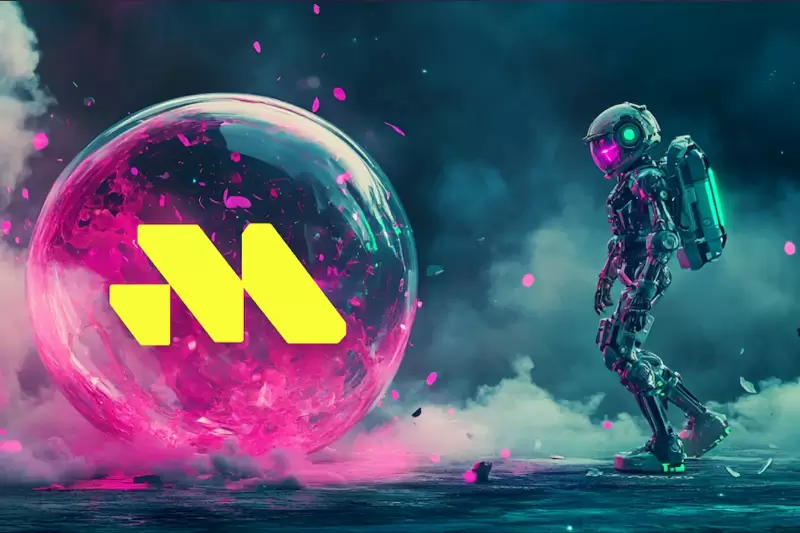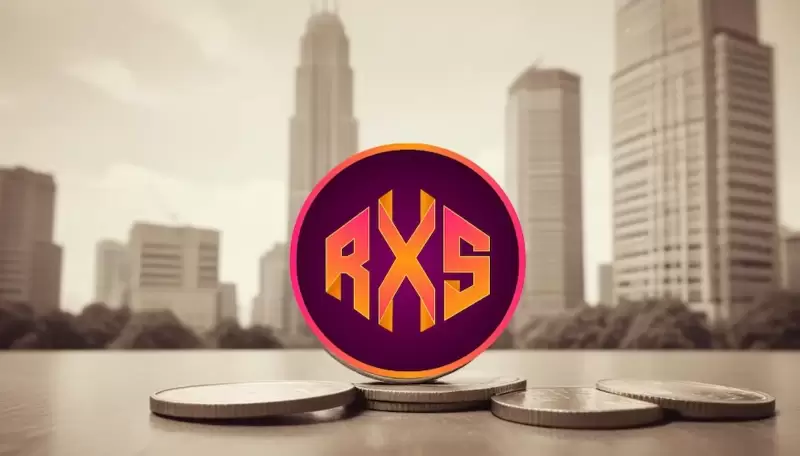 |
|
 |
|
 |
|
 |
|
 |
|
 |
|
 |
|
 |
|
 |
|
 |
|
 |
|
 |
|
 |
|
 |
|
 |
|
Cryptocurrency News Articles
Web2 Giants Are Rewriting the Rules of Digital Finance
Feb 23, 2025 at 04:26 pm
Once upon a time, crypto was called the wild west, an arid playground run by cowboys with wallets full of BTC and dreams of Lambos.

In the annals of crypto lore, there was a time when the landscape was likened to the Wild West – a rugged, untamed frontier governed by cowboys brandishing wallets brimming with BTC and dreams of Lambos. Fast forward to 2025, and that unforgiving terrain has undergone a remarkable transformation, yet it retains its capacity to perpetually surprise. One of the more pleasant surprises to have emerged in recent years has been the willingness of businesses once deemed the adversary of crypto to support its integration into every payment system.
Web2 giants – those household names that power your online existence – are saddling up and bringing their muscle to the crypto corral. PayPal, Visa, Mastercard – they're all cantering in, and it's a genuine game-changer. Why? Because when these titans join the party, crypto stops being a fringe fantasy and starts feeling like something you'd actually use on the daily. They don’t often receive credit for their Damascene conversion, but plaudits are due for the web2 players who’ve come full circle.
Financial Players with Skin in the Game
Let's start with the big guns. PayPal kicked things off in 2020, enabling users to buy, sell, and hold cryptos such as BTC and ETH. By 2024, they'd upped the ante, integrating stablecoin PYUSD and rolling it out to 430 million users worldwide. Visa's not far behind; since 2021, they've settled over $2.5 billion in crypto-linked transactions. Mastercard, meanwhile, is pushing crypto debit cards and piloting blockchain payments. From a user perspective, it means that if you're already on PayPal or swiping a Visa, crypto's not a leap – it's a sidestep. These giants are effectively turning “what's a wallet?” into “oh, I already have that.”
Neo-banks, the cool kids bridging old money and new, are also doing a lot of the heavy lifting here. Take Crypto.com, over 80 million users strong and with billboards at seemingly every major sporting event. Great name, globally recognizable brand. They've just added PayPal as a payment method, letting you fund your crypto buys straight from your PayPal balance.
This means no interminable transfers, no extra apps: just seamless integration into a platform you already trust. It's like adding crypto to your financial toolbox without needing a manual. Neo-banks like Crypto.com aren't so much lowering crypto's adoption curve as steam-rollering it till it's pancake flat.
Don't Forget the Partnerships Driving Adoption
Web3 projects love a good partnership announcement, and in collaborating with web2's major players, they've inked deals that are more than mere vapor. PayPal and Visa teamed up last year to streamline crypto payouts – think freelancers getting paid in USDC via Visa Direct. Mastercard's collab with wallet providers like MetaMask and Trust Wallet, meanwhile, let users top up cards with crypto in seconds.
Then there's Mercuryo, the rising fintech star, partnering with web3 heavyweights like Polygon and now powering euro crypto cards with Mastercard. These tie-ups aren't just headlines; they're highways, paving the way for crypto to flow into everyday life. Whether you position it as a web2 player streamlining access to web3 or vice-versa, the upshot is that Mercuryo and other payment providers are now mainstays for much of the money that flows between the on- and off-chain worlds 24/7.
Why Now?
What's fueling this fire in web2 giants? They're not entering web3 out of FOMO – they're smarter than that. Rather, their decision to support the cryptoconomy rather than sit it out on the sidelines is driven by more rational reasoning. With much of the regulatory risk and “exoticness” of crypto having been tempered, it's a lot safer for these TradFi titans to enter the fray. And there's money for them to make by connecting the old world with the new.
As for the competencies they bring to bear within the crypto arena, first there's user experience: we're talking apps so intuitive even your grandma could buy ETH. Second, there's security: Visa's fraud protection and PayPal's two-factor authentication make crypto feel less like a gamble. Third, there's familiarity: linking crypto to Apple Pay, Google Pay, or your trusty Visa card shrinks the learning curve to a blip. That's the vibe: safe, simple, and second nature.
Case Studies: The Proof's in the Pudding
The partnership between Mercuryo and MetaMask is a masterstroke for simplifying crypto onboarding. Their integration lets users buy crypto with a bank card in under a minute – no wrestling with seed phrases or navigating convoluted exchange signups. By tapping into Mercuryo'
Disclaimer:info@kdj.com
The information provided is not trading advice. kdj.com does not assume any responsibility for any investments made based on the information provided in this article. Cryptocurrencies are highly volatile and it is highly recommended that you invest with caution after thorough research!
If you believe that the content used on this website infringes your copyright, please contact us immediately (info@kdj.com) and we will delete it promptly.
-

-

-

-

-

-

-

- Brazil Greenlights the World's First XRP ETF, the DTX Exchange Token Surges More Than 800%
- Feb 23, 2025 at 11:10 pm
- With its upcoming listing poised to capitalize on shifting investor strategies, this $0.18 altcoin emerges as a focal point for traders balancing short-term pressures with long-term potential.
-

- Rexas Finance (RXS) Token Presale: A Revolutionary RWA Tokenization Platform Poised to Lead the Altcoin Season of 2025
- Feb 23, 2025 at 11:00 pm
- As Ethereum shows a super bullish setup, signaling the potential beginning of an altcoin season, Rexas Finance is transforming DeFi through a safe method of real-world asset tokenization
-


























































